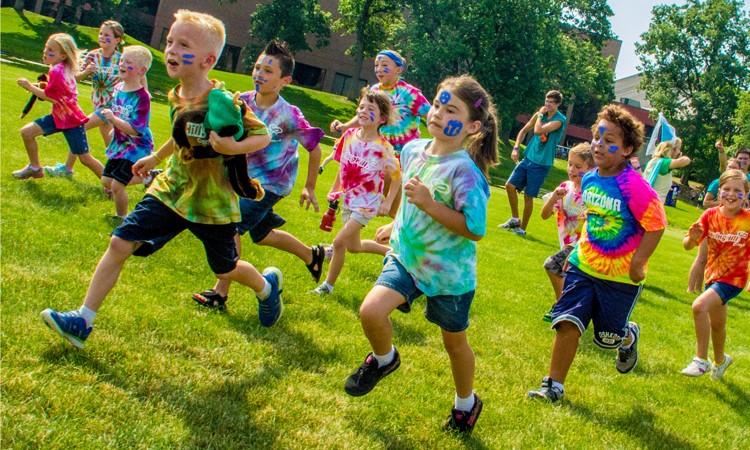A summer camp experience may be more important than ever in today’s digital world
An American tradition for many, camp is therapeutic and teaches harmony with nature in a hyperdigital world. It’s also expensive and not always equitable to all.
Summer camp is a long-standing tradition in the United States. It’s a way for kids to take a break from academics and connect with nature. And in today’s digital world, summer camp offers kids a respite from the virtual reality that dominates their lives.
Summer camp has been around in the US for about 150 years, says Tom Rosenberg, president and chief executive officer of the American Camp Association. Early camp directors were largely teachers who wanted to help students escape urban industrialization and bring them out to a healthier environment where they could focus and learn, using nature as a classroom.
Today, there are thousands of camps across the United States, from day camps to specialty sleepaway camps. There are also camps for children with medical or mental health disorders, camps for children of a particular culture or faith and camps that focus on specific skills, such as computers, music, engineering, kayaking, rock climbing and more. Most camps, whatever their primary focus, try to preserve the nature component to some degree.
Related: Camp Anytown Alabama teaches kids to deal with race
“We need to take advantage of nature’s classroom, because kids have the opportunity at camp to have distraction-free learning.”
“I think parents today are looking for their children to learn new skills in an environment that has a little bit of that traditional piece,” Rosenberg said. “It has exposure to nature, and also offers them that community experience where they’re learning to live and work and play and appreciate nature in a group setting. So, they’re learning to build relationship skills, learning to be more independent away from mom and dad, but also learning to be responsible for the group and for nature and [gaining] some stewardship skills.”
Family camp, where overnight camps have accommodations for the whole family, is not a new concept, but it’s a growing concept, Rosenberg added. “When I was a camp director, we would have sometimes three generations of a family come and experience overnight camp together for a solid week sometimes,” he said. “At family camp, kids can be engaged in programming that is appropriate for kids, teens can be engaged in teen programming, adults can do adult-level ‘positive risk’ opportunities. And, at different times of the day, the whole family is together doing activities.”
Related: Balalaikas and banyas: An average summer at Russian camp
Rosenberg believes camp is a more essential educational experience today than ever before. Studies indicate the postmillennial generation is developing the majority of their relationships digitally and communicating primarily in a digital fashion.
“Where is this generation learning in-person social skills? Where are they learning intuition and empathy for each other?”
“So, where is this generation learning in-person social skills? Where are they learning intuition and empathy for each other?” he asked. “We need to make sure that our children have a grounded education in social and emotional learning. Tied to that, we need to take advantage of nature’s classroom, because kids have the opportunity at camp to have distraction-free learning.”
Rosenberg points to scientific studies that suggest a strong correlation between exposure to nature and improved cognitive functioning in children. Children with ADHD, for example, concentrate better after being out in nature, and most children experience improved reasoning and observational skills after spending time in natural environments.
Kids are also showing up at camp having experienced a considerable amount of stress or even trauma, Rosenberg notes, and a number of recent studies link being out in nature to reductions in stress and anxiety. “Camp is therapeutic,” Rosenberg said. “Nature is therapeutic.”
Related: Mariachi Summer Camp for beginners teaches kids tradition for free
Camp is also expensive in many cases, which poses a serious obstacle to kids from lower-income households. Most American Camp Association-accredited camps offer some form of scholarship, but “it does take a good bit of work on a parent’s part to find a camp that offers resources that help them get to the camp of their choice,” Rosenberg said.
“We are trying to make camp more accessible,” he said. “I’d say today, in American Camp Association-accredited camps, over 30% of campers and seasonal staff are from a diverse background. But we’re working every day to make more parents aware of camp and the benefits it offers their children, as well as ways to make it a more equitable experience for all.”
This article is based on an interview that aired on PRI’s Living on Earth with Steve Curwood.
Our coverage reaches millions each week, but only a small fraction of listeners contribute to sustain our program. We still need 224 more people to donate $100 or $10/monthly to unlock our $67,000 match. Will you help us get there today?
